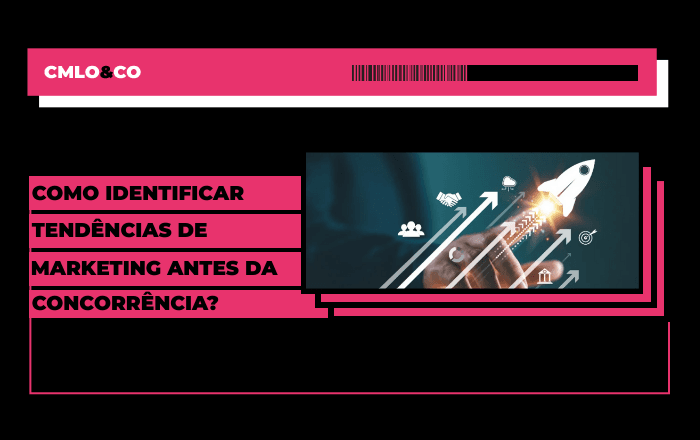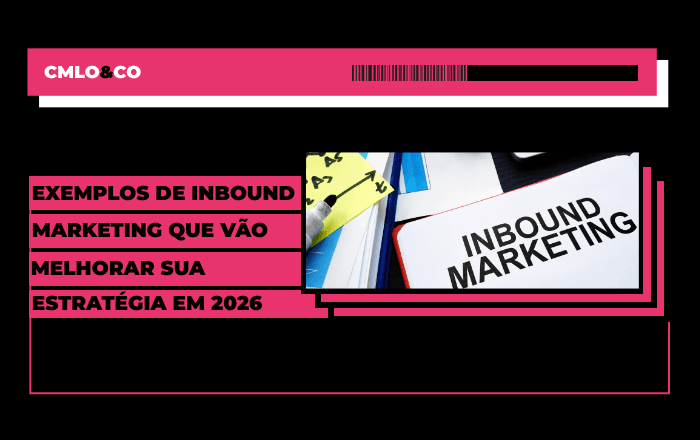The marketing is one of the most important areas for the success of any company, but especially for large ones. After all, they face stiff competition, greater consumer demand and a constant need for innovation.
But how can you carry out efficient marketing that brings results to your company? What are the strategies most used by big brands and how can you apply them to your reality?

In this article, we'll answer these questions and show you 8 strategies for marketing for large companies that you can use to boost your business. Check it out!
The importance of marketing for large companies
Marketing is the set of activities that seeks to understand the needs and desires of consumers, create value for them and communicate that value effectively. The activity involves everything from market research, strategic planning, product and service development, to promotion, distribution and after-sales.
Marketing is important for large companies because:
- It provides a better understanding of consumer behavior, preferences and expectations;
- It helps to build and strengthen the brand's image and reputation, generating trust, credibility and customer loyalty;
- It allows you to differentiate yourself from competitors by offering unique and personalized solutions for your target audience;
- It increases the company's visibility and reach, expanding business opportunities and partnerships;
- It boosts sales and profits, creating a valuable relationship between the company and its customers, who become more satisfied and more likely to buy again and recommend the brand to others;
- It encourages innovation and continuous improvement, stimulating creativity, experimentation and customer feedback.
According to IAB Brasil data published in IstoÉIn 2023, investment in advertising in Brazil grew by 11% in the first half of the year, reaching revenues of R$ 16.4 billion. This shows that companies recognize the importance of marketing in meeting market challenges and adapting to changes in consumer behavior.
8 marketing strategies used by big brands
But what are marketing strategies anyway? First of all, they are the actions that companies take to achieve their marketing objectives, such as increasing visibility, reputation, loyalty and sales.
There are several marketing strategies for large companies, depending on your target audience, your niche, your budget and your value proposition. Below, we'll present 8 of them that are very popular and efficient. Take a look:
1. conversational marketing
Conversational marketing is a way of interacting with customers through instant communication channels such as chatbots, messaging apps, social networks and voice. The aim is to create a personalized, dynamic and humanized conversation that generates engagement, trust and conversion.
Conversational marketing increases traffic and lead generation on your website or blog, and helps to qualify leads and identify their needs and interests. It also offers real-time customer support and service, speeding up the sales process and closing more deals.
2. SEO (Search Engine Optimization)
SEO stands out among marketing strategies for large companies, as it optimizes your brand's website or blog for search engines such as Google. The aim is to improve the organic positioning of your pages in search results, increasing the chances of attracting qualified visitors.
3. Storytelling
Storytelling is the art of telling engaging and exciting stories that connect your brand with your customers.
The marketing strategy can be used in various formats, such as articles, videos, podcasts, e-books, among others, as long as they are aligned with the objectives of your business and the profile of your target audience.
Storytelling is very interesting for conveying your mission, your values, your differentials and the benefits of your products or services, as it generates identification, empathy and loyalty.
An example of a company that uses storytelling is Coca-Cola, which is one of the most famous brands in the world and always creates advertising campaigns that tell inspiring and moving stories.
4. Influencer marketing
The influence marketingis a strategy that consists of using people who have influence over your target audience, such as celebrities, bloggers, youtubers, instagrammers, among others, to promote your brand, your products or your services.
The aim is to take advantage of the credibility, authority and reach of these influencers to generate trust, engagement and conversion for your company. To do this, however, you must identify the most suitable influencers for your business, create relevant and authentic content together with the influencers and monitor the results and return on investment.

5. Branded content
Also known as branded content, it is one of the most influential marketing strategies for large companies today. The strategy consists of creating content whose main focus is not to sell your products or services, but to educate, inform, entertain or inspire your target audience.
In other words, the aim of the advertising approach is to generate value for customers and strengthen the relationship with them. Versatile, branded content can be used on various channels, such as blogs, social networks, YouTube, magazines, TV, among others.
6. Value marketing
Another marketing strategy that can be exploited by large companies is value marketing. Its main objective is to show your target audience the real value of your products or services. In other words, the benefits they bring to customers' lives and not the price itself.
The great advantage of value marketing is that it highlights the solutions you offer to customers' problems or needs, and not just the features or functionalities of your products or services.
7. Sponsored campaigns
The sponsored campaigns are a way of promoting your brand, your products or your services through paid ads on digital platforms such as Google Ads, Facebook Ads, Instagram Ads, LinkedIn Ads, Twitter Ads and YouTube Ads.
These are strategies that seek to boost the visibility and reach of the brand, product or service, attracting qualified traffic and generating conversions for the company. The great advantage is that you can segment your target audience by criteria such as geographical location, age, gender, interests and behavior.
8. Social media marketing
To finish off our list of marketing strategies for large companies, we also have social media marketing.
The strategy seeks to use social networks as channels for communication, promotion and customer relations. The aim is to create a strong and consistent digital presence for the company, generating engagement, interaction and loyalty.

How do you apply marketing strategies in your company?
Now that you know some of the marketing strategies used by big brands, you may be wondering how to apply them to your company. Here are some tips:
- Put the customer at the center of decisions: know your target audience, understand their pains, desires and expectations, and offer solutions that meet their demands;
- Focus your strategies on the benefit of your product and not on sales: show how your product can improve customers' lives, not just its technical features or its price;
- Create quality content: produce content that is relevant, informative, educational, inspiring or entertaining for your customers, using different formats such as text, image, video or audio;
- Make a strategic partnership with a professional marketing and advertising agency: count on the support of a specialized team that can plan, execute and monitor your marketing strategies for large companies, guaranteeing the best results for your business.
One agency that can help you with this mission is CMLO&COis a marketing and advertising agency that offers creative and innovative solutions to its clients. With over 12 years' experience in the market and a highly qualified team of professionals, we have helped thousands of companies build solid relationships with their public and increase their visibility online and offline.
If you want to take your business to the next level, contact CMLO&CO and discover in practice the best marketing strategies for large companies.







